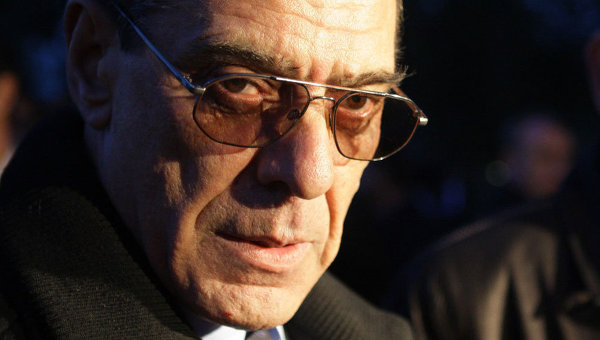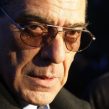
Russian Public Chamber Warns Karachaevo-Cherkessia Could Spiral into Violence
Publication: Eurasia Daily Monitor Volume: 8 Issue: 186
By:

On October 6, the Kavkazsky Uzel (Caucasian Knot) website reported widespread human rights abuses in Karachaevo-Cherkessia. The Russian Public Chamber under the Russian president voiced concern over large-scale arrests of Muslims in the republic. Over 80 people were arrested in Karachaevo-Cherkessia in connection with a brazen attack on a police checkpoint in the neighboring Stavropol region that occurred on September 1 (www.kavkaz-uzel.ru, October 6; EDM, September 16).
On September 1, near the village of Mirny in Stavropol region, a group of three or more people attacked a Russian road police checkpoint, killing a policeman and taking away his Kalashnikov. The attack was ascribed to the North Caucasus insurgents, even though no official statements confirmed this. Police operatives quickly moved from predominantly ethnic Russian Stavropol region to neighboring Karachaevo-Cherkessia in search of the assailants (www.gazeta.ru, September 2).
The police operation quickly turned into a massive onslaught on Karachaevo-Cherkessia’s Muslim community. Those detained were reportedly beaten up and tortured, and their beards were forcibly shaved. According to a rights activist quoted by Kavkazsky Uzel who requested anonymity, the detained Muslims did not even complain about their treatment for some time because they were convinced it was useless. The Russian Public Chamber members warned that such ways of reacting to outspoken crimes “could blow up the situation in previously quiet Karachaevo-Cherkessia.” They further said that it was impossible to believe the large number of people detained in Karachaevo-Cherkessia were involved in killing the policeman, pointing out that all those initially arrested were eventually released from custody (www.kavkaz-uzel.ru, October 6).
Karachaevo-Cherkessia has been a relatively quiet region in the North Caucasus, even though there were some spikes of political and ethnic rivalry in the republic. In 2004, Ali Kaitov, the son-in-law of the republic’s then president Mustafa Batdyev, and a group of accomplices killed seven local businessmen in an argument over economic assets. Batdyev allegedly tried to conceal his son-in-law’s involvement, which angered the relatives of the murdered businessmen. In the autumn of 2004, crowds stormed and took over the president’s building and the president himself ran away. Despite Batdyev’s lame duck position afterwards, the Kremlin kept him in office for another four years – until 2008, when his presidential term expired.
A respected expert on constitutional law, Boris Ebzeyev, succeeded Batdyev as Karachaevo-Cherkessia’s president. Ebzeyev was dubbed the “first appointee of Medvedev in the North Caucasus,” but in February 2011, he unexpectedly quit his job. Ebzeyev’s resignation was announced as voluntary, but it was clearly driven by the Kremlin. Sources in Moscow provided a vague explanation for his dismissal, saying his handling of socio-economic developments in the republic were “unsatisfactory” (https://ug.ria.ru/politics/20110227/82099555.html).
However, the real causes for Ebzeyev’s resignation may have been much more concrete. Ebzeyev reportedly alienated all of Karachaevo-Cherkessia’s powerful clans and was on the verge of losing control over the republic. As an ethnic Karachay, Ebzeyev challenged the influential Circassian minority’s leaders in the republic, at the same time he did not find broad support base among the Karachays, who comprise a plurality in Karachaevo-Cherkessia and tend to dominate politics. The fact that an outsider like Ebzeyev was replaced by 35-year-old Rashid Temrezov, a close associate of the previous president, further signified the local elites’ strength and the limits of Moscow’s power (https://www.russian.rfi.fr/kavkaz/20110301-Karachaevo-cherkesiya-korol-umer-da-zdravstvuet-korol).
Overall, the leadership in Karchaevo-Cherkessia has been very unstable over the past 12 years. Since 1999, the republic’s leaders have changed four times in presidential elections and none of the previous three presidents served more than one term. This is a highly unusual situation in the North Caucasus, where Moscow normally tries to keep its appointees in power for as long as possible.
Karachaevo-Cherkessia is a small region, with a population of just under 500,000. Only Dagestan, however, beats this republic in terms of the diversity of indigenous ethnic groups. According to the 2002 census, the Turkic-speaking ethnic Karachays comprised 38.5 percent of the republic’s total population, while the Circassian-speaking Cherkess people made up 11 percent. The Abaza people, who are related to both the Circassians and the Abkhaz, comprised seven percent of the republic’s total population. Another distinct Turkic-speaking people, the Nogai (aka western Kazakhs) comprised three percent of the total population (https://perepis2002.ru, accessed on October 9). Ethnic Russians made up 34 percent of the total population in 2002, significantly declining from the 42 percent they comprised in the previous census of 1989 (https://www.valerytishkov.ru/cntnt/publikacii3/kollektivn/kollektivn3/severnyj_kavkaz_v_nacionalnoj_strategii_rossii.html, accessed on October 9).
Karachaevo-Cherkessia certainly has the potential to go down the path of destabilization like neighboring Kabardino-Balkaria. In fact, prior to the massive uprising of young rebels in Nalchik in 2005, Karachaevo-Cherkessia had arguably been a more violence-prone republic than Kabardino-Balkaria. If the situation in Karachaevo-Cherkessia spins out of control, it will bring the North Caucasus’ zone of instability closer to the site of the 2014 Sochi Olympics.
The latest crackdown on the Muslim community of Karachaevo-Cherkessia exemplifies how the impunity of the law enforcement agencies in the North Caucasus contributes to the trend of regional destabilization. Massive arrests also signal that the police know relatively little about the Muslim communities in this republic, which prevents it from acting preemptively or distinguishing between different Muslim groups. In this situation, conflicts are bound to happen on a regular basis in Karachaevo-Cherkessia and unpredictability is likely to persist.




